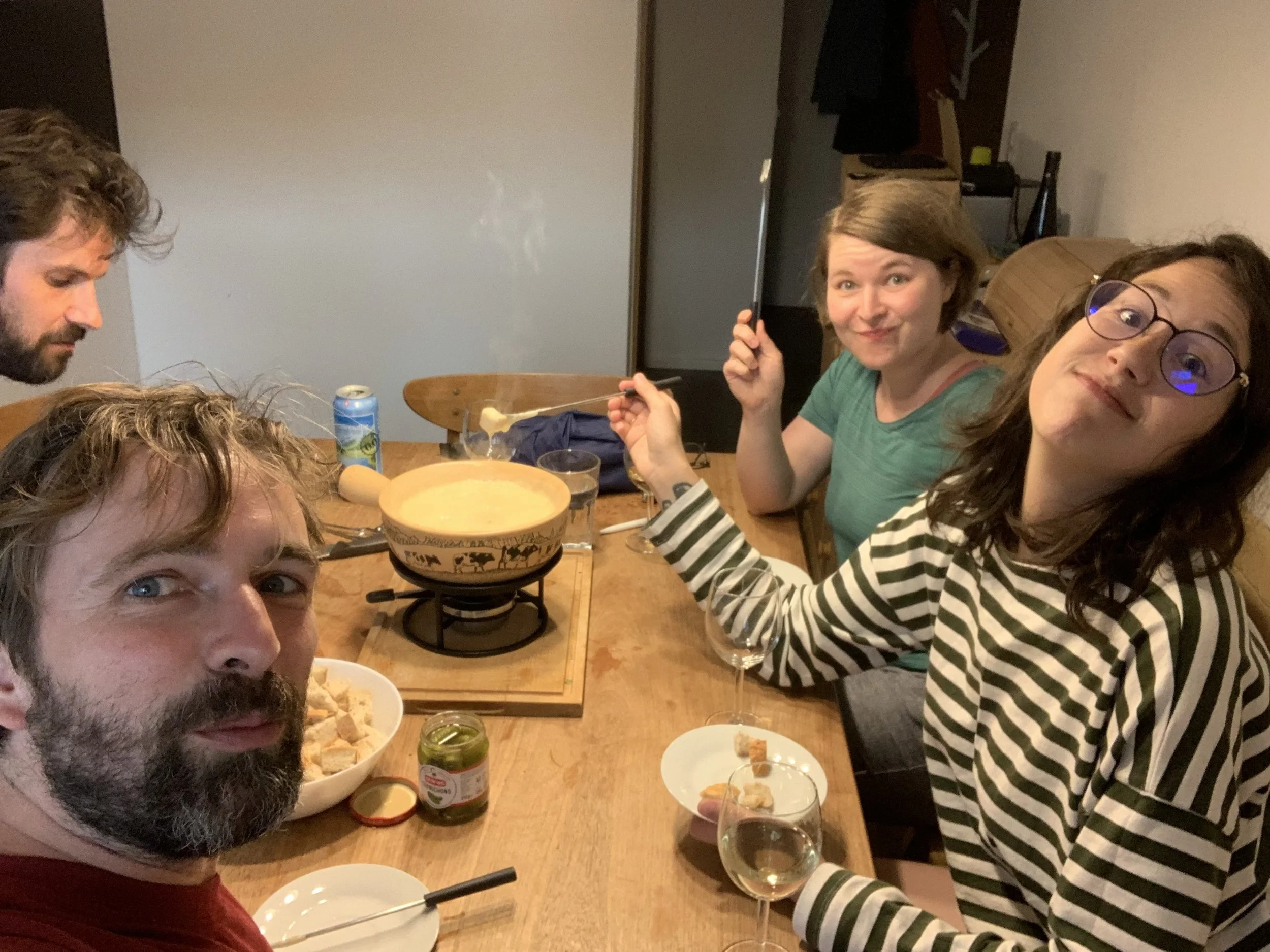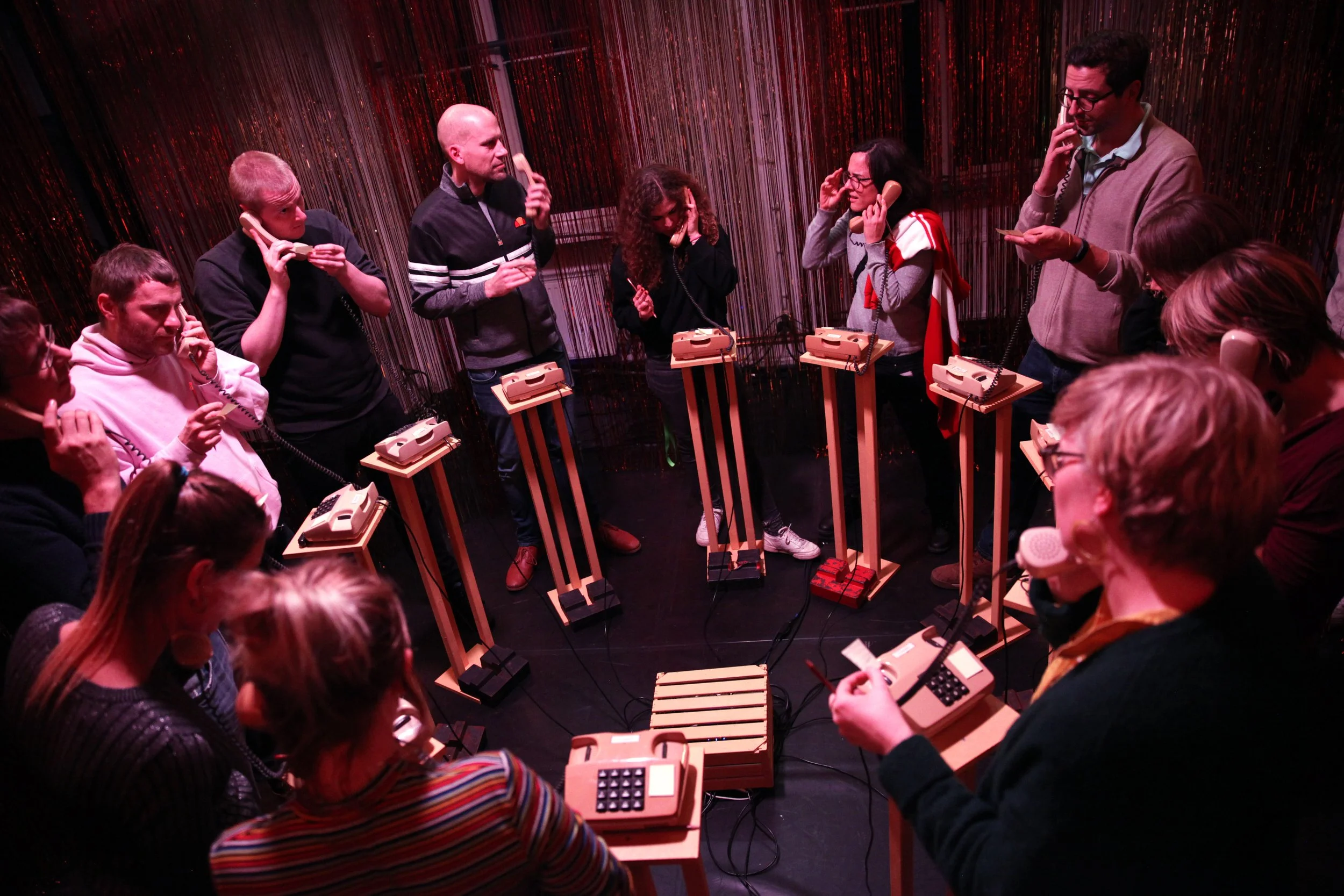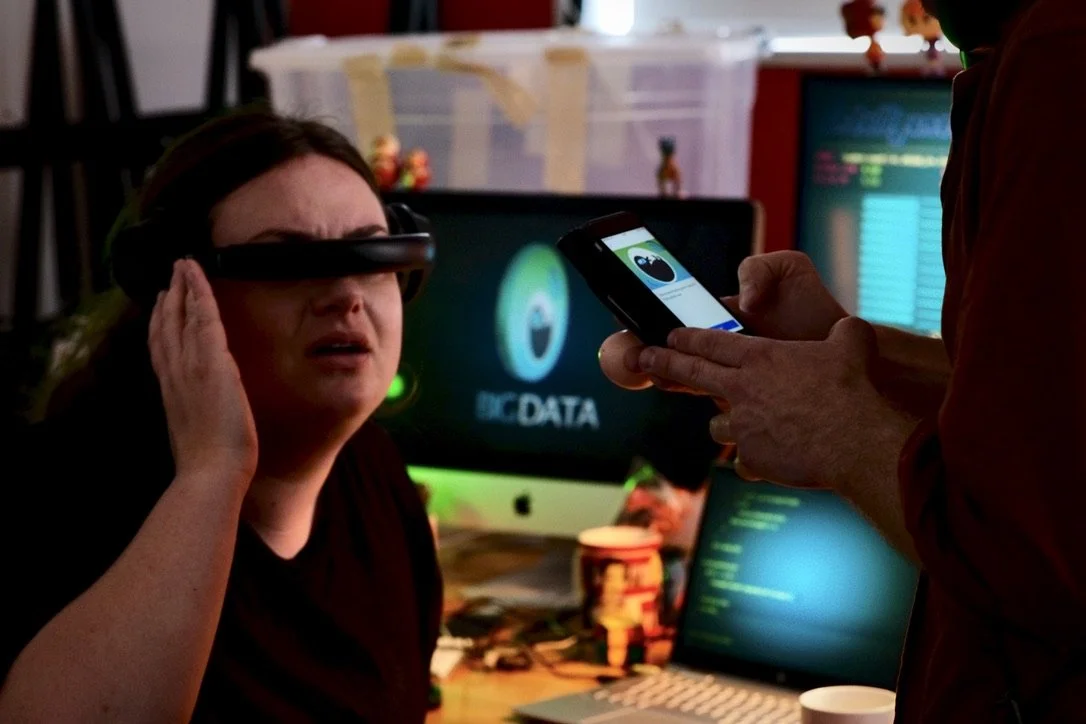Alternative Touring Models
Touring has always been a slightly atypical experience for Binge Culture, our theatre company of 15 years. Maybe it’s because the shows often weren’t designed for theatre spaces, or they were 6 hours long, or they involved 30 volunteers dressing up in wetsuits and stranding on a beach… Whatever the reason, the idiosyncratic nature of our projects has led us to look for alternative approaches to touring.
Photo Credit: Binge Culture, Whales
Even for more conventional work, touring outside of, and even around Aotearoa, is prohibitively difficult, expensive, and bad for the climate. However, nature finds a way, and so do we. By piggybacking awkward shows onto other tours (successful), working with local performers and proxies (successful), sending a box of mp3 players and headphones with written instructions (not as successful), we have managed to get even the weirdest work around.
I’m no expert on green touring, but I do know that not travelling has less of an impact than travelling (and, if I know maths, by a factor multiplied by distance). In addressing that most basic aspect of touring, the quest for financial viability goes hand in hand with environmental sustainability.
One obvious solution is by sending will-o-the wisp like digital files instead of our corporeal meat bodies. I think that’s part of it, however – and no shade to Zoom performances and audio-walks, which we are deep in ourselves – it’s a pretty bleak world where the performing arts are purely digital. Plus we miss out on that other great side-benefit to touring, which is the artistic exchange; the experiencing of work and ideas, and the connections and discussions with artists outside of your home environment that can have a profound and lasting impact on an artistic practice. This is why our latest scheme has felt like something that could potentially provide a vital model going forward, and not just for people like us.
THE PERFORMANCE EXCHANGE
Photo Credit: Joel Baxendale
I met Clara in Pōneke late 2022, and discovered her company Machina eX. It was like finding out that Binge Culture had a twin separated at birth. While Machina eX has natural differences, no doubt from having been nurtured in Berlin, the company displays uncanny likeness in taste for technology and audience interaction.
As we unpacked the similarities we talked about how we both generate a lot of new works but that some of these – whether for reasons of tourability, experimental form or whatever – don’t get the life that we believe they deserve. So while our first idea was that our companies might like to collaborate on another new work in the future, this quickly turned to how we might help each other extend the life of each others’ existing work.
Photo Credit: Dorothea Tuch, Disaster by Machina eX
We decided to embark on a performance exchange, where we would perform their work, Disaster, in Pōneke and they would perform our work, You and A.I., in Germany. Basically it’s a form of concept touring, but a mutual exchange. We have the benefit of becoming immersed in another company’s work and we trust each other to exercise a higher degree of artistic latitude than if it were a simple licensing agreement. In fact, because of the shared artistic values, we are interested to see what happens when another company takes the work and runs with it. It is almost more akin to a collaboration, but instead of starting from scratch we get to start with something already really solid.
Photo Credit: Binge Culture, You and A.I.
While we are still in the early stages of this initiative, I sense this is something we’ll want to repeat. We’re developing stronger relationships and learning from each other's practice in a deeper way due to a process that spans years rather than days, and by engaging so deeply with the dramaturgy of the work, we really see what they are about and learn from that.
So this idea of performance exchange means more than just that the work gets another outing.
It means international presentation, but with people who know the local context, are best-placed for creative adaptations and have the knowledge and networks to navigate the local ecosystem to secure presentation.
It means you can present ‘riskier’ work overseas, because you only need to convince these peers, not international presenters or agents.
It means both companies supporting each other’s development and future opportunities, potentially even acting as regional providers for more of the other’s work.
And it means minimising the impact on the climate, with fewer or no personnel needing to travel internationally. It also means that if you eventually do travel to that region, you can increase your handprint and have greater impact because of the existing depth of connection – getting more out of the travel and the associated environmental cost. In this way the ethical choice may also be a strategic choice for artistic companies wanting to enter new markets.
Regardless of how mainstream or fringe a work is, it feels like the days of flying visits are numbered, and for the best. Out of necessity we are going to see more initiatives that seek to maximise gains from minimum resources – I hope that performance exchanges can be one of them.
Joel Baxendale
Joel is the Creative Director of Binge Culture, a new-form theatre company based in Pōneke and founded in 2008. His artistic practice explores alternative performance forms within a collaborative devising process, with an ongoing interest in activating the audience, using found and online spaces, games mechanics, binaural audio and digital technology.





